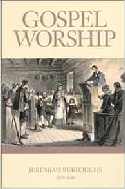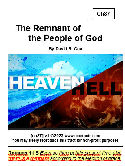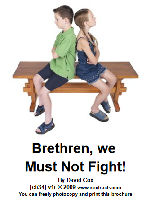Ads
Fundamentalist
Fundamentalist
By David Cox
In this post, I try to quantify what is a “fundamentalist”? I will put my own thoughts as well as links to some other people’s thoughts on the matter. (Note that this post will be updated with more information in the future.
I defended the “biblical” aspect of there being “fundamentals of the faith” in my tract.
doct01 Fundamentals of Christian Faith –
Note that the South Carolina Baptist Fellowship made a Resolution republished in The Projector (Vol. 7 No. 2 Feb/March 1978). I will reproduce this Resolution here for your reference.
Fundamentalism is to hold to the essentials of the Christian faith. This is what biblical Christianity has to be.
See Fundamentalism: An Overview
The Causes of Fundamentalism
Essentially the Fundamental movement was born in the arguments and debates in Christianity between a movement towards more liberalism which disavowed the miraculous in Christianity, and tended towards accommodation with other beliefs and movements that are not strictly biblical.
Note that if we believe that God gave us the Christian faith and practice as is seen in the Bible, then to change from that position and practice to other positions and practices, even in part, is to give up that which God has given us. While there is a purity desire within Fundamentalism, this very quickly becomes aggressive against those forces which seek to change what Fundamentalists discern as essentials given to us by God.
Where no Fundamentalist will see an electric organ or offset press printed hymnals as parting from the faith, the point is that some things are essential, and some are not. Discerning which is which is very difficult under most circumstances, and a liberal would discern that doctrine and practice are not essential, and a Fundamentalist would discern that they are not. Some Fundamentalists would seem to put a lot into “faith and practice” that maybe shouldn’t be there, and liberals would take a lot out of “faith and practice” that should stay there. Many groups exchange the biblical gospel for a different one, and liberals are onerous in doing this as a practice.
See Fundamentalism an article on the different phases of Fundamentalism
See also The Causes of Fundamentalism, Intolerance, and Extremism in World Religions and some solutions.
Wrong use of the term Fundamentalism
Notice that US media groups want to equate “fundamentalist” with extremist, and they have for years termed islamic fundamentalists as terrorists. We need to understand that in a different religious body (Christianity versus Islam) the truth is that both fundamentalists hold to the essentials of their faith. The Islamic fundamentalist is a person who kills and is at war with anybody that is not their particular flavor of islam. While this is true, it does not mean that holding to a religious faith’s essential beliefs and practices is wrong, i.e. the term is wrong to use.
“Fundamentalism is a protest against that rationalistic interpretation of Christianity which seeks to discredit supernaturalism,” Laws wrote in 1922. “This rationalism, when full grown, scorns the miracles of the Old Testament, sets aside the virgin birth of our Lord as a thing unbelievable, laughs at the credulity of those who accept many of the New Testament miracles, reduces the resurrection of our Lord to the fact that death did not end his existence, and sweeps away the promises of his second coming as an idle dream.”
See The Origins of Fundamentalism This article explains the original use of the term back in the 1910 and 1916 by pastor Curtis Lee Laws.
More Posts from true Christianity Category
- What is the Churchs Purpose?
- What is a “Fundamentalist” biblically considered?
- The Biblical Marks of Christianity
- The Bible Concept of “Truth”
- Resolution of SCBF on Biblical Fundamentalism vs Pseudo/Neo-Fundamentalism January 9, 1978
- Preacher’s Motives 1Thess 2:1-12
- Marks of a True Christian
- Is Foreign Missions Biblical?
- God is truth, Satan is deception
- Discerning between a False and True Christianity

Burroughs Gospel Worship 14 chapters (263 pages) which are each a sermon on how to properly worship God. (format PDF)
“Jeremiah Burroughs’ Gospel Worship has greatly influenced my understanding of biblical worship. It is one of the most important books I have ever read.”
–R.C. Sproul
Download: Burroughs Gospel Worship.






